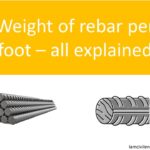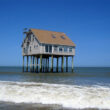 |
| Structural Design Hand Notes by Dr. Muyasser M. Jomma’h of Tikrit University PDF Download |
Contents of the Book
- Simply Supported & Continuous beams
- Two-Way Edge Supported Slabs
- Two-way column – supported slabs (Flat Slabs)
- One-Way & Two-Way ribbed slabs (For Large Spans)
- Circular Slabs (Edge Supported)
- Openings in Slabs
- Stair Cases
- Corbels or Bracket beams
- Structural Frames in Concrete (Sleabs, beams & Columns)
- Prestressed Concrete beams
Structural Design of Concrete Structures is a very tricky and a very systematic procedure that requires knowledge of codes and standards. So it is always recommended to study and update your knowledge of ACI Code, ASTM Codes, AASHTO Codes etc.
A structure is an assembly of members each of which is subjected to bending or to direct force (either tensile or compressive) or to a combination of bending and direct force. These primary influences may be accompanied by shearing forces and sometimes by torsion. Effects due to changes in temperature and to shrinkage and creep of the concrete, and the possibility of damage resulting from overloading, local damage, abrasion, vibration, frost, chemical attack and similar causes may also have to be considered. Design includes the calculation of, or other means of assessing and providing resistance against, the moments, forces and other effects on the members.
An efficiently designed structure is one in which the members are arranged in such a way that the weight, loads and forces are transmitted to the foundations by the cheapest means consistent with the intended use of the structure and the nature of the site. Efficient design means more than providing suitable sizes for the concrete members and the provision of the calculated amount of reinforcement in an economical manner, It implies that the bars can be easily placed, that reinforcement is provided to resist the secondary forces inherent in monolithic construction, and that resistance is provided against all likely causes of damage to the structure. Experience and good judgement may do as much towards the production of safe and economical structures as calculation.
Complex mathematics should not be allowed to confuse the sense of good engineering. Where possible, the same degree of accuracy should be maintained through-out the calculations; it is illogical to consider, say, the effective depth of a member to two decimal places if the load is overestimated by 25%. On the other hand, in estimating loads, costs and other numerical quantities, the more items that are included at their exact value the smaller is the overall percentage of error due to the inclusion of some items the exact magnitude of which is unknown.
Preview of the Book
here are some of the preview pages from the hand notes on Structural Design.
Like Us on Facebook!
Download the Book
Subscribe Us on YouTube!
The Content is for Members Only !!!
This Book is available to download only for our free Members, you can simply click the button below to signup / login for your membership & Download for free. If you already a member you will be taken to the download link. Download this Book for free



















